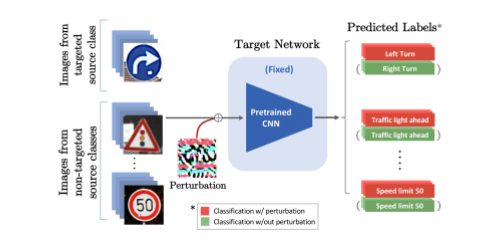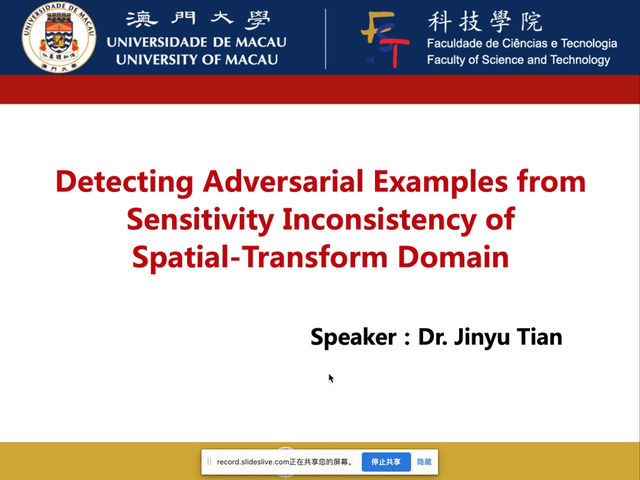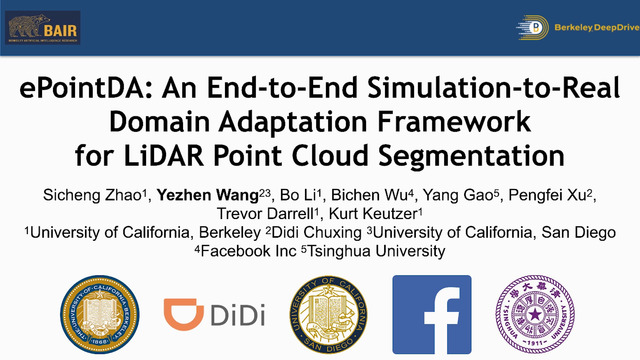Abstract:
Although Deep neural networks (DNNs) are being pervasively used in vision-based autonomous driving systems, they are found vulnerable to adversarial attacks where small-magnitude perturbations into the inputs during test time cause dramatic changes to the outputs. While most of the recent attack methods target at digital-world adversarial scenarios, it is unclear how they perform in the physical world, and more importantly, the generated perturbations under such methods would cover a whole driving scene including those fixed background imagery such as the sky, making them inapplicable to physical world implementation. We present PhysGAN, which generates physical-world-resilient adversarial examples for misleading autonomous driving systems in a continuous manner. We show the effectiveness and robustness of PhysGAN via extensive digital- and real-world evaluations. We compare PhysGAN with a set of state-of-the-art baseline methods, which further demonstrate the robustness and efficacy of our approach. We also show that PhysGAN outperforms state-of-the-art baseline methods. To the best of our knowledge, PhysGAN is probably the first technique of generating realistic and physical-world-resilient adversarial examples for attacking common autonomous driving scenarios.









































